The recent spat between the ruling Congress and the main Opposition BJP over the legacy of India’s ‘Iron Man’ Sardar Vallabhbhai Patel has reignited the debate over the differences among the stalwarts on key issues pertaining to the nation’s unity and identity.
It has also brought to the fore certain bitter truths about the then political leadership, which has hitherto been brushed under the carpet as even their discussion was considered not only politically incorrect but also blasphemous to a great extent.
The pre-independence Congress was not a party but a movement of freedom fighters among whom included people from all shades and ideologies. It was due to this fact that Mahatma Gandhi, despite not being a member of the Congress party, was accepted as the Supreme leader.
For a greater understanding of the freedom struggle and the politics of those turbulent times, it becomes important to understand the historical facts and context pertaining to the election of India’s first Prime Minister and Sardar Patel’s stand on contentious issues such as Article 370 and religion based reservation, which continues to be widely debated to this day in the country.
The First Prime Minister
By the time World War-II was coming to an end, it was becoming clear that India’s freedom is not very far. It was also very clear that it will be the Congress President, due to the number of seats the party had won in the 1946 elections, who shall be invited to form the Interim Government at the Centre. Thus, suddenly the position of the President of the Congress Party became a matter of great interest.
Once the election to the post of Congress President was announced, Maulana Abul Kalam Azad expressed his desire for re-election. This move of the Maulana “agonized Azad’s close friend and colleague Jawaharlal who had his own expectations.”1 However, Gandhi had made his choice known in favour of Nehru on 20th April, 1946. This was not the first occasion that Gandhi spoke about his choice of Nehru. He had been speaking about it for the last several years. However, despite Gandhi’s open support for Jawaharlal Nehru, the Congress Party overwhelmingly wanted Sardar Vallabhbhai Patel as the President and consequently the first Prime Minister of India, because it considered Patel as ‘a great executive, organizer and leader”2 with his feet firmly on the ground.
April 29, 1946 was the last date for the nominations for the post of the President of Congress, and thereby the first Prime Minister of India. It is pertinent to note here that by this time Gandhi had already made his choice known. Still 12 out of 15 Pradesh Congress Committees nominated Sardar Patel. The remaining three may not have nominated Patel but then they did not nominate anyone else also including Pt. Nehru. Thus, no Pradesh Congress Committee proposed the name of Jawaharlal Nehru even on the last day of filing the nominations i.e. April 29, 1946.
However, Nehru was formally proposed by a few Working Committee members who did not form any electoral college. Once this happened, efforts began to persuade Sardar Patel to withdraw his nomination in favour of Jawaharlal. Patel sought the advice of Gandhi, who in turn asked him to do so and “Vallabhbhai did so at once.”3 But it must be mentioned that before advising Patel to withdraw, Gandhi had given enough hint to Nehru to step down in favour of Sardar Patel. Gandhi told Nehru:
“No PCC has put forward your name…only [a few members of] the working committee has.”4
This remark of Gandhi was met by Jawaharlal with “complete silence”. Once Gandhi was informed that “Jawaharlal will not take the second place”, he asked Patel to withdraw. Dr Rajendra Prasad lamented that Gandhi “had once again sacrificed his trusted lieutenant for the sake of the ‘glamorous Nehru’ and further feared that “Nehru would follow the British ways.”5
When Rajendra Prasad was using the phrase “once again”, he indeed was referring to the denial of Presidentship of the Congress to Patel, always at the last moment in 1929, 1937 and 1946 in preference to Nehru. Prasad was not the only person to complain about Gandhi “sacrificing his trusted lieutenant for the sake of the glamorous Nehru.” There were many others. But Gandhi took the decision because he was convinced that “Jawaharlal will not take a second place but by giving Jawaharlal the first place, India would not be deprived of Patel’s services and the both will be like two oxen yoked to the Governmental cart. One will need other and both will pull together”.6
Sardar Patel agreed to take a secondary position because of two reasons: firstly, for Patel, post or position was immaterial. Service to the motherland was more important; and secondly, Nehru was keen that “either he would take the number one spot in the Government or stay out. Vallabhbhai also reckoned that whereas office was likely to moderate Nehru, rejection would drive him into opposition. Patel shrank from precipitating such an outcome, which would bitterly divide India.”7
The very same Maulana Azad, who had always been considered a great friend and confidant of Jawaharlal and who had issued a statement on 26th April 1946 calling for Nehru’s election as Congress President, wrote in his autobiography, published posthumously in 1959:
“After weighing the pros and cons, I came to the conclusion that the election of Sardar Patel would not be desirable in the existing circumstances. Taking all facts into consideration it seemed to me that Jawaharlal should be the new President….
“I acted according to my best judgment but the way things have shaped since then has made to realize that this was perhaps the greatest blunder of my political life. I have regretted no action of mine so much as the decision to withdraw from the Presidentship of the Congress at this junction. It was a mistake which I can describe in Gandhi’s words as the one of Himalayan dimension.“My second mistake was that when I decided not to stand myself, I did not support Sardar Patel. We differed on many issues but I am convinced that if he had succeeded me as Congress President, he would have seen that the Cabinet Mission Plan was successfully implemented. He would have never committed the mistake of Jawaharlal which gave Mr. Jinnah an opportunity of sabotaging the Plan. I can never forgive myself when I think that if I had not committed these mistakes, perhaps the history of the last ten years would have been different.”8
Looking back at those tumultuous years, Rajagopalachari, who had all the reasons to be angry, unhappy and uncharitable to Sardar Patel because it was the latter who deprived Rajaji the first Presidentship of India, wrote almost 22 years after Patel’s death:
“When the independence of India was coming close upon us and Gandhi was the silent master of our affairs, he had come to the decision that Jawaharlal, who among the Congress leaders was the most familiar with foreign affairs, should be the Prime Minister of India, although he knew Vallabhbhai would be the best administrator among them all…
“Undoubtedly it would have been better if Nehru had been asked to be the Foreign Minister and Patel made the Prime Minister. I too fell into the error of believing that Jawaharlal was the more enlightened person of the two… A myth had grown about Patel that he would be harsh towards Muslims. This was a wrong notion but it was the prevailing prejudice.”9
Thus, not only the people of this country, but even those great Congressmen who supported Nehru to become Prime Minister regretted their action later on.
Article 370
The framing of the Constitution of India was virtually in the final stages. Gopalaswamy was made in-charge of framing the part dealing with Kashmir. A draft was finally agreed upon among Jawaharlal Nehru, Sardar Patel, Gopalaswamy, Dr. Ambedkar, the Maharaja of Jammu and Kashmir, Sheikh Abdullah and three of his colleague. It was also approved by the Constituent Assembly and the Congress Party. The Article dealing with Kashmir in this draft was known as Article 306A. But after Abdullah and party went back to Srinagar, they started raising objections to this draft. Abdullah argued that the provisions of Indian Constitution applicable on all other states should not be applicable on Jammu and Kashmir. He just would not listen to any reasoned argument. It transpires that this move of his had the blessings of Jawaharlal Nehru. It was perhaps Nehru who advised Abdullah to seek the help of Ambedkar for securing the Special Provisions for Jammu and Kashmir. After giving a patient hearing, Ambedkar told Abdullah:
“India should provide all the money for the governance and development of your state. India should undertake to defend your state against Pakistan and other aggressors. Indians should die to defend your state. You will have a separate constitution, separate head of state, separate sets of laws and separate flag. Your people can buy and own land anywhere in rest of India but none who was not born in Jammu and Kashmir could reciprocally buy and own property in Jammu and Kashmir. Indians should be taxed to develop your land, to defend it from all aggressions and you have no obligation at all to the Indian Union. I can never agree to such treatment to any state.”10
It is very difficult to guess whether Gopalaswamy was honest in writing in what he wrote to Patel after Abdullah’s interview with Davidson in which he demanded an independent Kashmir, or was he really playing a game. Nevertheless, he lamented that it was unimaginable and hurtful that:
“after having agreed to the substance of our draft both at your [Sardar Patel’s] house and at the party meeting, they [Abdullah and company] would let me and Panditji down in the manner they were attempting to do.”11
But the story gets murkier as we proceed. Though Gopalaswamy and Nehru were blaming Abdullah for the impasse and trying to impress on Patel that they were unhappy with Abdullah’s behaviour, somewhere behind Patel’s back, the game was still on. Gopalaswamy, on 15 October, 1949, sent another draft of the Article to be incorporated in the Constitution, replacing Article 306A dealing with Kashmir, to Patel for his consideration. Gopalaswamy did not forget to mention in his covering letter that he has prepared this new draft, in place of the one agreed upon by all:
“Without giving up the essential stands we have taken in our original draft, read just it in minor particulars in a way which I am hoping Sheikh Abdullah would agree to.”12
Patel was aghast at the draft. What Gopalaswamy was calling as ‘minor’ adjustments, and in all essential it was the original draft, was seen by Sardar Patel as follows (communicated to Gopalaswamy):
“I find there are some substantial changes over the original draft, particularly in regard to the applicability of fundamental rights and directive principles of state policy. You can yourself realise the anomaly of the state becoming part of India and at the same time not recognising any of these provisions. “I do not at all like any change after our party has approved of the whole arrangement in the presence of Sheikh Sahib himself. Whenever Sheikh Sahib wishes to back out, he always confronts us with his duty to the people. Of course, he owes no duty to India or to the Indian Government, or even on a personal basis to you and the Prime Minister who have gone all out to accommodate him.
“In these circumstances, any question of my approval does not arise. If you feel it is right thing to do, you can go ahead with it.”13
Things became more and more complicated due to the reopening of the Constitution Draft, already unanimously approved by the Constituent Assembly, and that too without anybody raising any note of dissent. Abdullah and three of his colleagues were present when this draft (Article 306-A) dealing with Kashmir was approved by the Constituent Assembly. They also did not raise any objection or moved any amendment to it. Still, Gopalaswamy and Nehru thought it prudent to open the chapter and start drafting the whole thing afresh (which came to be known as Article 370) as per the whims and fancies of Sheikh Abdullah and his cronies. The state got a Constitution of its own which was an unfortunate by-product of Article 370. No other State of the Indian Union has a separate Constitution. All other States have a uniform structure as per the Part IV of the Constitution.
The question that now arises is as the inheritor of Sardar Patel’s legacy, does the Congress feel, like Sardar Patel, that Article 370 is not the right thing and it need to be dealt with? As a part of Sardar Patel’s legacy, does it have any plan abolish Article 370 and make Jammu and Kashmir at par with all other states? If not that can it restore proposed Article 306A that was agreed upon and approved by the Constituent Assembly?
Religion Based Reservation and Separate Electorate
Right from the Congress party to all other political parties who claim to be the protector of minority (read Muslim) interest are now clamouring for separate electorates and job reservations for the Muslims in the name of religion. Some states have gone ahead with such reservations defying the High Court and Supreme Court directives. The Central Government headed by the Congress party appointed Sachar Committee to look into the problems faced by Muslims and Prime Minister Dr Manmohan Singh declared from the ramparts of Red Fort that “Minorities, particularly Muslims, have the first claim on the (nation’s) resources”.
Not that this issue was not discussed in the Constituent Assembly. It was discussed and the entire debate is available in Volume V of the Constituent Assembly Debate. Sardar Patel also spoke on the issue.
Replying to the debate on 27 August 1947 and addressing the issue of Separate Electorates, and also the question of religion based reservations in Government jobs, he said:
“I am sorry to learn that this question [question of the separate electorate] was taken seriously.… There are many eminent Muslims who have recorded their views that the greatest evil in this country which has been brought to pass is the communal electorate. The introduction of the system of communal electorates is a poison which has entered into the body politic of our country. Many Englishmen who were responsible for this also admitted that. But today, after agreeing to the separation of the country as a result of this communal electorate, I never thought that this proposition was going to be moved seriously, and even if it was moved seriously, that it would not be taken seriously. Well, when Pakistan was conceded, at least it was assumed that there would be one nation in the rest of India – the 80 per cent India – and there would be no attempt to talk of two nations here also. It is no use saying that we ask for separate electorates, because it is good for us. We have heard it long enough. We have heard it for years, and as a result of this agitation we are now a separate nation. The agitation was that ‘we are a separate nation; we cannot have either separate electorates or the weightage or any other concessions or consideration sufficient for our protection. Therefore, give us a separate State.’ We said, ‘All right, take your separate State’. But in the rest of India, in 80 per cent of India do you agree that there shall be one nation? Or do you still want the two nations talk to be brought here also? I am against separate electorates…. Therefore, my dear friends, I ask you “Do you want now peace in this land? If so do away with it.... I appeal to you ‘let us at least on this side show that everything is forgotten’.”14
Replying to the amendment motions moved in the Constituent Assembly in favour of separate electorates, he further stated:
“You cannot have it both ways. Therefore, my friends, you must change your attitude, adopt yourself to the changed conditions. And don’t pretend to say “Oh, our affection is very great for you”. We have seen your affection. Why talk about it? Let us forget the affection. Let us face the realities. Ask yourself whether you really want to stand here and cooperate with us or you want again to play disruptive tactics. Therefore when I appeal to you, I appeal to you to have a change in your heart, not a change of tongue, because that won’t pay here. Therefore, I still appeal to you: ‘Friends, reconsider your attitude and withdraw your amendment”. Why go on saying “Oh, Muslims were not heard; Muslim amendment was not carried”. If that is going to pay you, you are mistaken, and I know how it cost me to protect the Muslim minorities here under the present condition and in the present atmosphere. Therefore, I suggest that you don’t forget the days in which the agitations of the type you carried on are closed and we begin a new chapter. Therefore, I once more appeal to you to forget the past. Forget what has happened. You have got what you wanted. You have got a separate State and remember, you are the people who were responsible for it, and not those who remain in Pakistan. You led the agitation. You got it. What is it that you want now? In don’t understand. In the majority Hindu provinces you, the minorities, you led the agitation. You got the partition and now again you tell me and ask me to say for the purpose of securing the affection of the younger brother that I must agree to the same thing again, to divide the country again in the divided part. For God’s sake, understand that we have also got some sense. Let us understand the thing clearly. Therefore, when I say we must forget the past, I say it sincerely…. There must be reciprocity. If it is absent, then you take it from me that no soft words can conceal what is behind your words. Therefore, I plainly once more appeal to you strongly that let us forget and let us be one nation.”15
Can the Congress, as the ‘true’ inheritors of Patel’s legacy stand by these statements and uphold the interest of the nation rather than indulge in vote bank politics?
Notes and References:
- Raj Mohan Gandhi, 1991, Patel: A Life, Ahmedabad, p. 369.
- Ibid, p. 370.
- Ib id. p. 371.
- Ibid.
- Durga Das, India from Curzan to Nehru, New Delhi, p. 230.
- Raj Mohan Gandhi, 1991, Patel: A Life, Ahmedabad, p. 370.
- Ibid. p. 371.
- Maulana Abul Kalam Azad, India Win Freedom, New Delhi, pp. 162. The last two paragraphs of the quotation were withheld from the publication. As per the will of Azad many of the paragraphs, including these two, were published thirty years after his death.
- Swarajya, 27.11.1971; also quoted in Rajmohan Gandhi, Rajaji: A Life, p. 443, Penguin.
- Balraj Madhok, 1954, Dr. Syama Prasad Mookerjee, New Delhi.
- N. Gopalaswamy to Sardar Patel, letter dated 15 October, 1949, In Durgadas (ed), Sardar Patel Correspondence, 1945-1950, Ahmedabad, p. 302.
- Ibid.
- Sardar Patel to N. Gopalaswamy, letter dated 16 October, 1949, In Ibid. p. 305
- Constituent Assembly Debate, Vol. V, Lok Sabha Secretariat, New Delhi, pp. 225-26.
- Ibid. pp. 270-72.
Published Date: 18th November 2013, Image source: http://days.jagranjunction.com

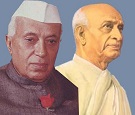
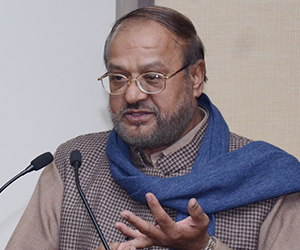

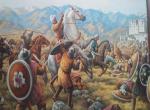
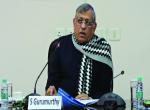
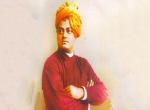
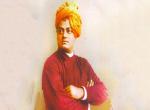
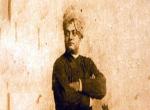
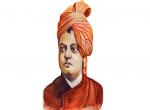

Post new comment